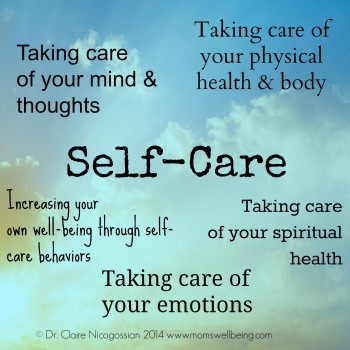
In this post I share 7 strategies to lower stress and increase resilience. They are good resilience boosters for everyone, but particularly helpful for caregivers to remember.
Lately I have been sleep deprived as my mother has not been sleeping at night. Well, she doesn’t sleep in the daytime either! In fact, she will spend day and night talking to imaginary patients in her medical clinic. As a physician my mother was very proud to be sought after for more than prescriptions and medical exams, she was the go-to doc for insight and inspiration for better living. She was known to dispense advice on relationships, self-esteem and even career planning.
Now at 82, of all the complaints she has, not being able to counsel and help people are ranked as high as not being able to see and not being able to walk well. While hallucinations are often seen in patients with dementia, I wonder if hers are a self-soothing mechanism to ease her sense of loss.
The feeling of uselessness due to a lack of productivity is one I know well. I first encountered this sense of loss during the first few months of being a mother. It seemed that I went from being highly functional and productive to becoming a breastfeeding-on-demand bottle washer and diaper changer.
So I can empathize with what mom feels now. It is heartbreaking to feel that what you do best, that which you have enjoyed with great pride is no longer an option. So while I recognize that my own shift toward being a full-time caretaker is associated with a certain ‘loss’ of my personal freedom, I am filled with compassion knowing that for me it is temporary – for her it is not.
But as the lack of sleep takes its toll on me, I do notice my thoughts drifting toward the dark side. Responding with negativity feels all too convenient to unexpected phone calls, a need to run to the grocery store, or an explanation for the 20th time in the last hour that we are now in France. Experts say that recognizing signs of caregiver burnout is the first step. Next, it is time for resilience and stress relieving strategies!
Burnout and stress-related illness are very common among those who care for elderly, terminally ill patients and people with special needs. In addition to the physical depletion, the emotional symptoms cited most with caregiver burnout and overwhelm include feeling isolated, helpless and overburdened. But many of us are afraid to voice those tender feelings out of fear of judgment.
TIP # 1 : EXPRESS, DON’T REPRESS
While it is tempting to stay silent, nearly every expert in caregiving explains that we must talk about our experiences – even the negative emotions we feel. Venting actually helps to lower your stress response and it also allows others the chance to be there for us. While it can be difficult to appear ‘weak’ to others, we must be mindful that repressing our challenging emotions makes us more vulnerable to exploding later.
Clinical psychologists explain that when we identify or name our stressful emotions, we engage a part of the brain associated with rational thinking, the prefrontal cortex. This part of the brain typically goes ‘off line’ when we are stressed as the lower, reptilian brain engages in the fight-or-flight response. Dan Siegel, author of Mindsight and Brainstorm: The Power and Purpose of the Teenage Brain, calls the technique “Name it to tame it” and explains that we can integrate the left and right hemispheres of the brain to calm us down.
In the first step of the Attunement Meditation I teach for reducing stress and anxiety we become consciously aware of our feelings and emotions. And my patients are often surprised at just how much more space and control they feel when they call out these feelings, rather than stuff them away. And control in the moment is gained little by little. So practice is necessary.
If you find yourself trying to escape from your feelings with sleep, sex, drugs or food, try getting in touch with the emotion driving you. Name it, and allow it the space to be. Our emotions are messengers. If the feeling is telling you that you’ve reached your limit, it may be best to take a time out.
You may prefer to write about your feelings in a journal. This can also be wonderfully cathartic — but also find time to write about positive experiences. A study of two groups of college students, published in the Journal of Research in Personality. They were split into two groups. The first group wrote about an intensely positive experience every day for three consecutive days. The second group wrote about a neutral control topic. Three months later, the students who wrote about positive experiences had better mood levels, fewer visits to the health center, and experienced fewer illnesses.
TIP #2 : PRACTICE SELF-CARE
So many of us as caregivers put our all into nurturing our loved ones and leave nothing for ourselves. All too often our own care and nurturing is put off or abandoned altogether. As my mother often says in her Guyanese accent, “An empty barrel can give no water.” If we do not take the time to refuel ourselves, the level of care we give will be substandard. Further, if we don’t care for our bodies and minds, we become more susceptible to illness.
So while you may struggle with feelings of guilt when you decide to go to the movies, take an extra long bubble bath, or go for a long walk, experienced caregivers know that making yourself a priority will help you stay upbeat and positive for the long haul.
The most basic self-care and health advice is often overlooked, but I’ll repeat it for you anyway!
- Be sure to feed yourself! Eating balanced meals with plenty of protein and good fats will keep you energised. Avoid excessive consumption of highly processed foods and sugary treats as they will rob you of precious energy.
- Drinking plenty of water — not alcohol! — to keep your brain functioning with fewer energy slumps.
- Take the time to just breathe. When we are stressed we tend to hold our breath or breathe shallowly. Deep breathing is known to lower stress hormones and increases vagal tone which is linked to a calmer brain state that is needed for fast recovery and resilience. When I teach clients to meditate (see Tip #6 , we always begin with a simple breath awareness meditation that is instantly calming for most people.
- If you are particularly amped up with anger, frustration or irritability, I suggest you add a practice of meridian tapping, like Thought Field Therapy (TFT) to your self-care regimen. Studies show that people who were severely stressed, depressed and anxious felt relief when using TFT tapping, and it was correlated with increased heart rate variability. In fact, there are many ‘energy psychology’ practices along with TFT that show great promise for lowering stress rapidly. Don’t be afraid to try them as an alternative to medication — and as a preventive measure for avoiding burnout!
TIP #3 : PRACTICE SELF-COMPASSION
I admit that I often hide my feelings of frustration and resentment because, I am, after all, healthy and I (presumably!) have a bright future ahead of me. When I harbor these negative feelings for too long I naturally start feeling guilty for even having them! It is a vicious cycle that breeds depression and almost self-pity.
I say almost because I know that research shows that when we recognize that the reactions we have to trauma and tragedy are normal and healthy, we can put them into perspective without letting them overwhelm us. When we acknowledge that we humans do have limits, we can then practice being compassionate to ourselves and find our sense of courage and strength increase. By recognizing our own tenderness, we are also more available to be compassionate to others.
Having access to our compassionate heart is part of a guided meditation practice I teach called The Attunement Meditation. Because we are often hard on ourselves, learning to be more compassionate to ourselves takes practice. You can find free meditation downloads on my website to help with this process.
TIP #4 : INCREASE POSITIVE EMOTION
Studies have shown that people who experience or express positive emotions more than others becoming increasingly optimistic and tranquil. Therefore joy, awe, gratitude and humor are particularly helpful for caregivers to cultivate.
While I have found blogging about my experience as a caregiver helpful to release stress, I also have a nightly ritual with my daughter of naming the top 3 things I’m grateful for in my life. We have been known to write in our gratitude journal or make little notes to drop into a gratitude/happy jar . I find that gratitude helps me feel better in the moment and allows me to put my caregiving role into a positive perspective, aligning the ‘work’ with my life’s greater purpose.
Practicing gratitude and taking note of positive, funny or inspiring things that happen during that day is also a wonderful way for caregivers to focus on the positive side of caring for someone who may not be with you long.
By and large the best antidote to caregiving grumpiness is humor. I have a few joke-a-day websites, blogs, and funny text message mistake lists I visit to bring a smile to my lips and laughter to my heart.
Whether it is listening to music, connecting with Mother Nature, or watching a comedy flick, be sure to find ways to increase positive emotions like awe, humor, gratitude and happiness. Research shows you will become more resilient by taking note of even the littles micro-moments of positive emotion!
TIP #5 : CONNECT WITH OTHERS
It is really tempting for me to shut down and isolate myself when I’m stressed out. But one trait of highly resilient people is that ability to lean on and into positive relationships.
I also connect with other caregivers and healthcare providers on social networks who are sharing positive life messages to remind myself that I’m not alone and that the challenge is worth it.
I’m often surprised at how easily other people come up with solutions to the daily challenges I face because they are removed from the intensity of my situation. Mats Uldal, a leading European teacher of Thought Field Therapy (TFT), who like others travels the world teaching TFT to help people who’ve suffered severe trauma, recently reminded me of the power of tapping when I feel stressed. (See Tip #2 on Self-Care for more on TFT.) Just hearing a concerned and supportive voice was soothing — and the self-care reminder was a bonus! Make a point to reach out more often.
TIP #6 : MEDITATE
Research shows that people who meditate daily display more positive emotions that those who do not. Barbara Fredrickson, the author of the Broaden and Build theory of positive emotion has proven that people who meditate also build valuable long-term skills and resilience. For example, her research show that after three months of study, people who meditated daily continued to display increased mindfulness, purpose in life, social support, and decreased illness symptoms.
The metta meditation, also known as the Loving-Kindness Meditation is what is most often studied. It is a wonderful way to enhance compassion for yourself and others, and you can gain benefits with as little as 5-7 minutes of practice per day.
Scientific studies of Indian yoga masters demonstrate that meditation can, in fact, slow the heart rate, lower the blood pressure, reduce the breathing rate, diminish the body’s oxygen consumption, reduce blood adrenaline levels
Note: If you’re looking for an easy way to start meditation, check out the self-forgiveness meditation here.
TIP #7: EXERCISE
I saved the best for last. Sadly it is usually the first thing that drops off of a caregiver’s schedule! No one can dispute the health benefits of exercise, but people who have the role of caregiver will almost always avoid exercise due to fatigue or a jam-packed day.
Almost any type of exercise will help but Harvard reports that using large muscle groups in a rhythmic, repetitive fashion is like “muscular meditation.” Walking and jogging are good examples. Even as little as 20-minutes of walking can clear the mind and reduce stress.
Now, more than ever, I rely on short bursts of activity like interval training to keep my body fit. As a bonus it gives me a burst of endorphins, the body’s natural feel-good chemicals to keep my mood up.
A calmer sort of exercise, like yoga bring mind-body benefits together nicely. Allowing you to bring focus to the breath and posture to release tension, regular yoga practice is something you can do at home with plenty of online videos and DVDs available.
***
When you consider that these tips are the very practices that keep stress at bay then by practicing them now you will prevent many of the stress-related diseases that rob you of vitality with age.
This articles was originally published on my HuffingtonPost blog in 2015.
Wishing you joy, love and optimal wellbeing,
Dr. 1Drea










